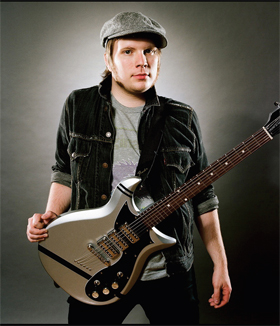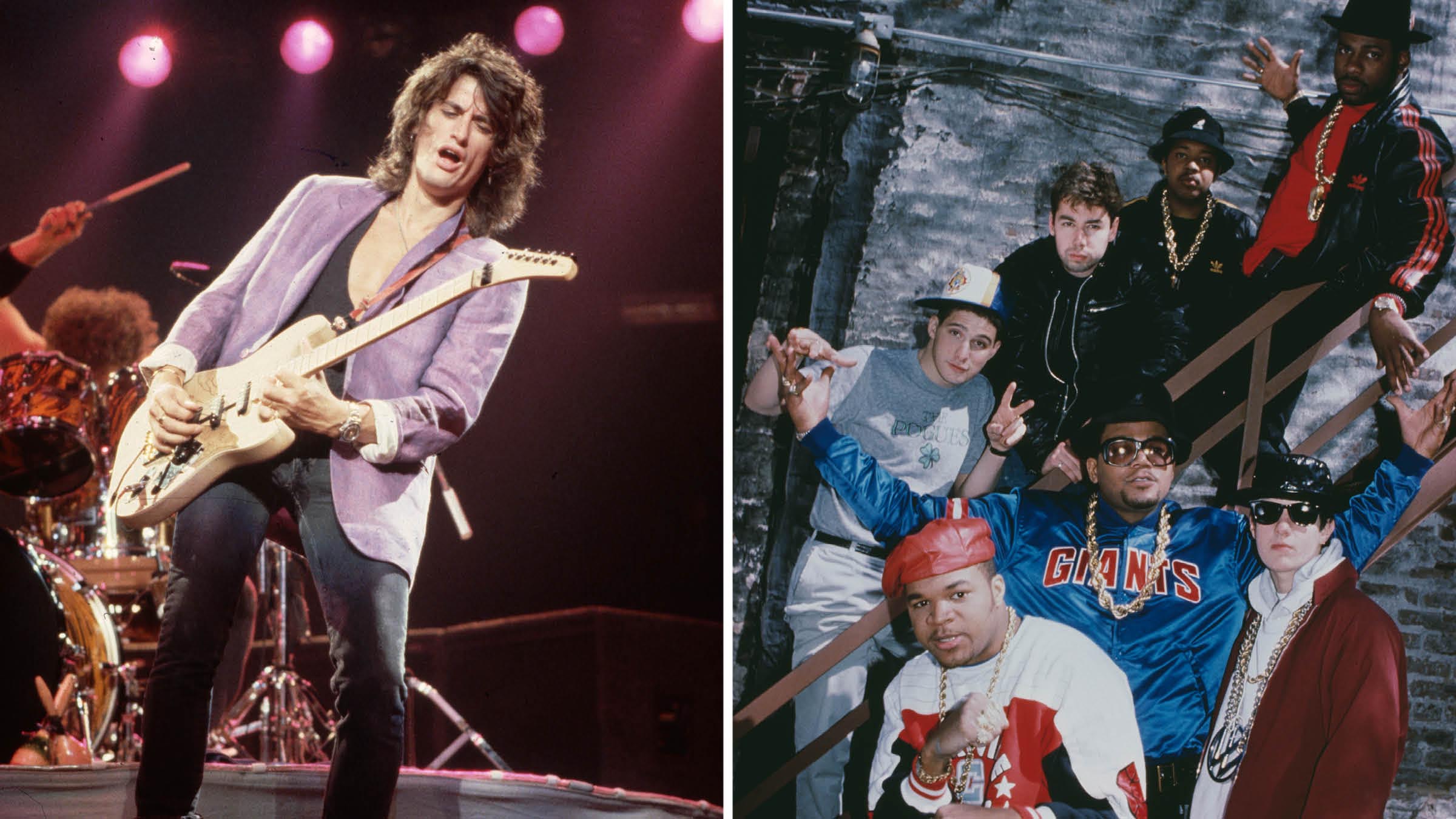Fall Out Boy: Stump Speech
All the latest guitar news, interviews, lessons, reviews, deals and more, direct to your inbox!
You are now subscribed
Your newsletter sign-up was successful

Originally published in Guitar World, January 2009
Fall Out Boy rhythm king Patrick Stump declares victory with his “I Don’t Care” riff and brand-new Gretsch signature guitar.
Patrick Stump describes his musical relationship with guitarist Joe Trohman as “a lopsided team-player kind of thing. I probably play more guitar overall on the records than Joe—I play all the rhythms and do some of the lead stuff—but Joe plays a lot of very distinctive parts.”
In Stump’s view, the rhythm guitar sound for Fall Out Boy is “sort of monolithic. We’re not like the Stones, where you have these very different tonalities and approaches interlocking. We go for more of a focused rhythm sound, so that’s why it falls on me most of the time to play them.”
Still, Stump champions Trohman’s contributions. “The band wouldn’t be half as good without Joe,” he declares. “He’s a very free-spirited, inventive player, and the parts he comes up with are very original and genuine, but they have to be deployed in the right way. Basically, we go in and we cut the song, and then Joe will start layering, filling in spots that need something, adding all those ornamental touches. We’ll take out and leave in whatever works. Sometimes we’ll take his lead instead of mine; other times it’ll go the other way.”
Of all the songs on the group’s latest album, Folie à Deux, Stump is particularly proud of his riff for the first single, “I Don’t Care.” “I’m from Chicago, so the blues is in my blood,” he explains. “To me, that riff is John Lee Hooker, but it’s very overdone in a deliberate way. I wanted it to sound familiar, so that from the second you heard it, your body would respond.”
As it happened, Stump created the riff practically on the spot. “I played it and was there in two seconds. I recorded it so I wouldn’t forget it, and bam!—there it was, a stone-cold smoker. For probably the first time, I was going for a riff that you could sing. And now, every time I hear it, it feels like victory: I got a blues riff on a Fall Out Boy song!”
All the latest guitar news, interviews, lessons, reviews, deals and more, direct to your inbox!
He has also achieved another victory of sorts: his own signature guitar, the G5135-PS Patrick Vaughn Stump Signature Series Gretsch Stump-O-Matic Electromatic Corvette. “It’s a mouthful,” he says of the guitar’s long name, “but it’s one hell of a guitar. I wanted something that had the Gibson crunch, but I also wanted something with a nice, bright, clean sound. Originally, I saw it as a live guitar, but I ended up using it all over the album, on rhythms and leads.”
Stump also specified that the ax needed a thin neck. “I’m kind of a dork with small hands, you know?” he says, with a laugh. “And the neck on this thing is perfect. There’s not one spot I can’t get around on.” In addition, he wanted an instrument with lots of natural sustain, and to that end the string-through-body design was key. “It’s a solid-body, but I get a lot of sustain from it even when the guitar isn’t plugged in.”
While Stump insists he’s not on the stump for Gretsch, he’s certainly excited about his signature ax. “I’m not out there hawking products to everybody, but this guitar was a real labor of love,” he says. “It came out better than I could have dreamed, so I have no problem saying, ‘If you want a guitar that looks good, feels good and gives you an awesome sound, check it out!’ ”
Spoken like a true pitchman.
